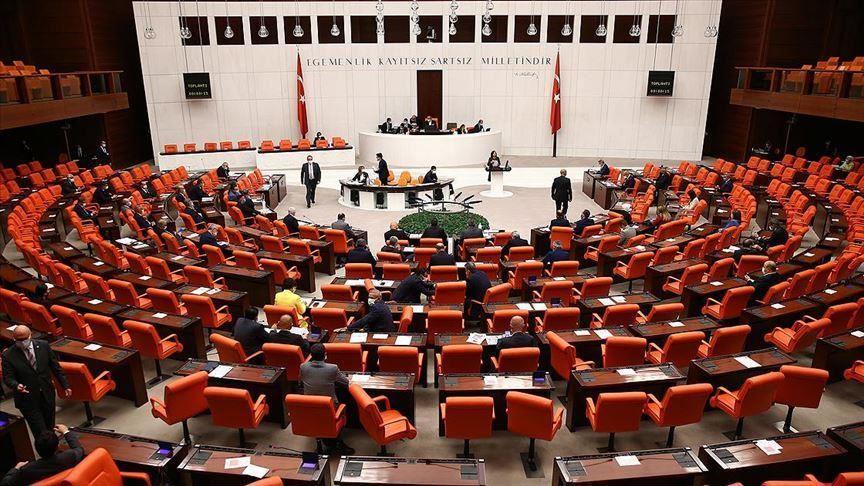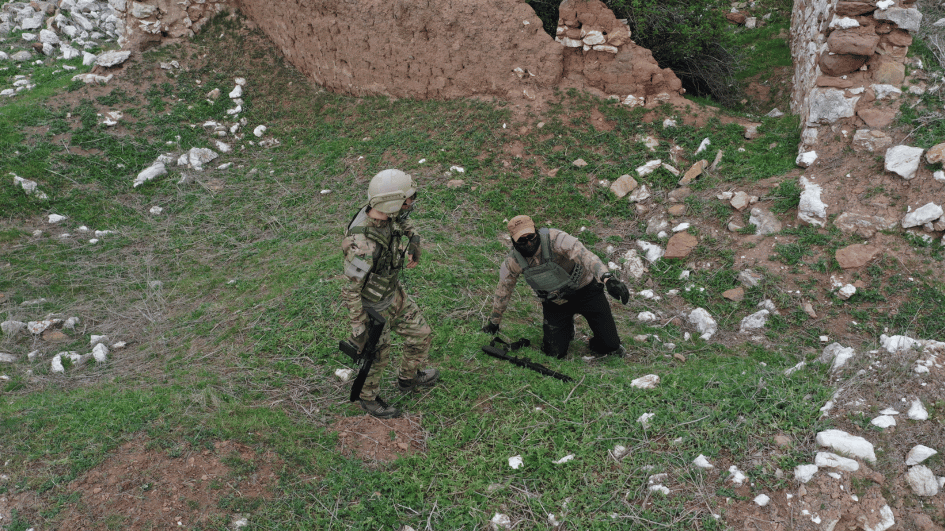Turkish Parliament to form earthquake measures committee
ANKARA

The Turkish Parliament passed a motion on Nov. 3 to form an investigation committee after accepting a proposal submitted by five political parties for measures to be introduced to prevent damage caused by earthquakes in the tremor-prone country.
At the Parliament Advisory Board meeting, the political party group deputy chairs agreed that the motions made by the parties on this issue earlier would be combined and discussed, a move that came after the opposition parties expressed criticism that several motion proposals to discuss the earthquake measures were rejected by the ruling party in the past years.
Speaking during the joint motion discussions, İYİ (Good) Group Deputy Chairperson Lütfü Türkkan stated that the question of what the fate of the earthquake taxes, which were initially made temporary and then permanent after the 1999 Gölcük earthquake, has become was unanswered.
He recalled that for the past 21 years the citizens have been paying earthquake taxes over services such as for use of mobile phones, internet banking transactions, Spor Toto, National Lottery, flight tickets customs and passport transactions.
The Presidential Communications Directorate has announced that the amount of earthquake taxes collected in 17 years at the beginning of February was 147.2 billion Turkish Liras.
“What did you do with the earthquake taxes?” it asked.
Republican People’s Party’s (CHP) İzmir Deputy Kamil Oktay Sındır pointed out that the “zoning amnesty” regulations introduced in the past, especially during the election periods, made it legal for people to live in worse conditions.
Cahit Özkan, the ruling Justice and Development Party’s (AKP) deputy chairperson, responded to the opposition’s questions about measures on the issue.
Noting that the Disaster and Emergency Management Presidency (AFAD) was established in 2009 and the Earthquake Building Regulation was updated, Özkan said the government increased the number of earthquake observation stationed to 1,300.
The National Earthquake Strategy and Action Plan (USDEP) was implemented in 2014 and 12,000 schools were analyzed against earthquake risk, he noted.
The number of houses secured against earthquake was 50,000 in 1999, and it has reached nine million now, the AKP lawmaker stated, noting that the government has built 970,000 durable residences.
Over the last 17 years, 147 billion liras were collected from the earthquake taxes, he said, adding that 1.21 trillion liras, which is 8.3 times as high, was spent on earthquake zones.
Last week, a magnitude 6.6 earthquake in Izmir, Turkey’s third-largest city, killed at least 110 people, injured more than 1,000, and left many homeless.
In 1999, a magnitude 7.4 tremor hit the industrial province of Kocaeli, leaving nearly 17,000 people dead and around 45,000 others injured. Nearly 16 million people were affected, and around 200,000 people left homeless.
















